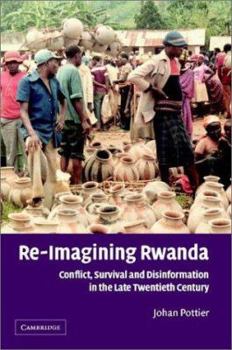Re-Imagining Rwanda: Conflict, Survival and Disinformation in the Late Twentieth Century
The conflict in Rwanda and the Great Lakes in 1994-1996 attracted the horrified attention of the world's media, diplomats and aid workers struggling to make sense of the bloodshed. This study shows how the post-genocide regime in Rwanda managed to impose a simple, persuasive account of Central Africa's crises upon international commentators, and explains the ideological underpinnings of this official narrative. It is a sobering analysis of how simple,...
Format:Paperback
Language:English
ISBN:0521528739
ISBN13:9780521528733
Release Date:October 2002
Publisher:Cambridge University Press
Length:276 Pages
Weight:1.55 lbs.
Dimensions:0.6" x 6.0" x 9.0"
Customer Reviews
0 rating





